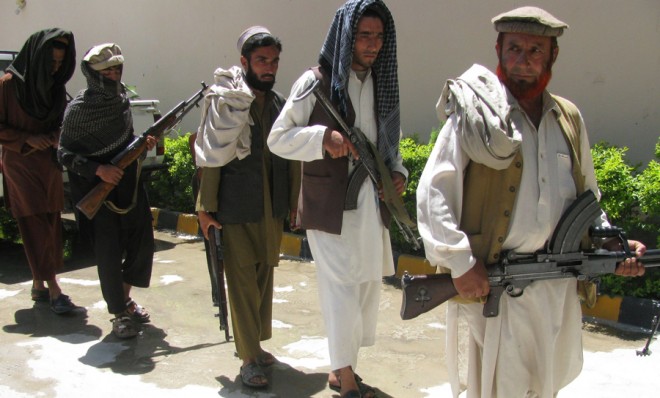Taliban peace talks: Finally, a breakthrough?
After more than a decade of war, the Afghan insurgent group says it's ready for negotiations


A free daily email with the biggest news stories of the day – and the best features from TheWeek.com
You are now subscribed
Your newsletter sign-up was successful
After twelve years of war, is Afghanistan finally on the road to peace?
Hope sprung anew on Tuesday, with Taliban leaders announcing that they are willing to enter direct peace negotiations with the Afghan government led by President Hamid Karzai. If the talks take place, they'll be the first tete-a-tete discussions between the two sides since a U.S.-led force ousted the Taliban from power in 2001.
The news came just as NATO formally handed over the lead on security to Afghan forces, a critical step ahead of a withdrawal of all foreign combat troops by the end of next year.
The Week
Escape your echo chamber. Get the facts behind the news, plus analysis from multiple perspectives.

Sign up for The Week's Free Newsletters
From our morning news briefing to a weekly Good News Newsletter, get the best of The Week delivered directly to your inbox.
From our morning news briefing to a weekly Good News Newsletter, get the best of The Week delivered directly to your inbox.
The first step — discussions between American and Taliban representatives in Doha, Qatar's capital — could begin as soon as Thursday, with the approval of the Taliban leader Mohammed Omar. After three years of bumpy progress toward peace negotiations, the Taliban has agreed to two preconditions that the U.S. has demanded for any talks: The insurgents have accepted that Afghan soil should not be used to stage attacks on other countries, and they have committed to finding a peaceful solution to the war.
The concessions, says The New York Times, indicate that the proposed talks are a "potentially groundbreaking move." The renunciation of threats against other nations from Afghanistan is particularly important, since it would theoretically sever links between the Taliban and al Qaeda, which planned and executed the Sept. 11, 2001, terrorist attacks while its leaders were sheltered in Afghanistan under Taliban rule.
American officials also point to the Taliban's decision to formally open a political office in Doha — a move more than two years in the making — as a significant step forward.
The optimism over the latest developments, however, is not universal. One senior U.S. official tells CNN that reconciliation would probably be "long, complex and messy," since trust between the Afghan government and the Taliban is low.
A free daily email with the biggest news stories of the day – and the best features from TheWeek.com
The U.S. has reportedly made concessions, too. American diplomats had insisted that the Taliban formally reject al Qaeda before direct talks could begin, says The Guardian. Now, the paper says, the U.S. has agreed that a break with al Qaeda would "be a 'negotiating aim' rather than a precondition for talks."
As one senior U.S. official puts it to The Guardian: "This is an important first step but it will be a long road. We have long said this conflict won't be won on the battlefield."
Harold Maass is a contributing editor at The Week. He has been writing for The Week since the 2001 debut of the U.S. print edition and served as editor of TheWeek.com when it launched in 2008. Harold started his career as a newspaper reporter in South Florida and Haiti. He has previously worked for a variety of news outlets, including The Miami Herald, ABC News and Fox News, and for several years wrote a daily roundup of financial news for The Week and Yahoo Finance.
-
 Political cartoons for February 21
Political cartoons for February 21Cartoons Saturday’s political cartoons include consequences, secrets, and more
-
 Crisis in Cuba: a ‘golden opportunity’ for Washington?
Crisis in Cuba: a ‘golden opportunity’ for Washington?Talking Point The Trump administration is applying the pressure, and with Latin America swinging to the right, Havana is becoming more ‘politically isolated’
-
 5 thoroughly redacted cartoons about Pam Bondi protecting predators
5 thoroughly redacted cartoons about Pam Bondi protecting predatorsCartoons Artists take on the real victim, types of protection, and more
